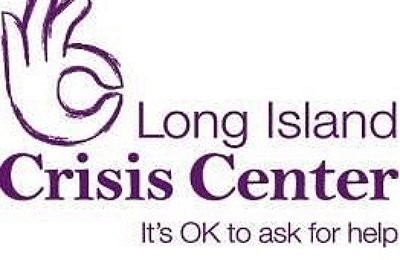L.I. Crisis Center continues to serve through pandemic
The Long Island Crisis Center continues to serve the South Shore and beyond, offering uninterrupted services since the pandemic began last year.
“There’s been no down time since day one,” said Joseph Walsh, a licensed master social worker and director of the Crisis Center. While some staff now occupy the headquarters in Bellmore after it was closed last March, virtual services live on and provide vital resources for those in need.
In the last three months of 2020, the Crisis Center received more than 400 calls related to the coronavirus, according to Walsh. These sometimes included calls for medical information, but largely were from those seeking support counseling to counter trauma brought on by the pandemic.
“The pandemic leaves many feeling isolated,” Walsh said. “As we enter winter, we’re certainly at a more critical time now, and we’re prepared to respond to coronavirus-related calls [and] emotional distress if people had losses connected to Covid.”
Forty counselors, who are currently at-home volunteers, staff the LICC hotline — (516) 679-1111 — 24 hours a day, following their motto: “Any problem, any time, anyone.”
“The calls have . . . become more isolation-related rather than interpersonal relationship problems, because people aren’t interacting with other people as much,” said Debra Katz, a Bellmore resident and volunteer. “People are isolated, and that is a huge problem now.”
Katz worked with special-education students during her 32 years as a teacher before she retired in 2016. Her ability to understand and assist with their emotional problems — especially problems brought on by bullying — made her eager to join the center as a counselor, she said.
When Katz gets a call, she listens. “Sometimes that’s all they need,” she said. “People need to be heard — some have no one to talk to. Just to have somebody on the other end of the phone to listen to them and tell them it’s OK to feel the way they feel, sometimes that’s all they need.”
Counselors also offer referrals when callers seek additional help. “There are some people who don’t want to go to counseling, though — we are a non-threatening alternative,” Katz said.
LICC has also continued to operate Pride for Youth, which provides health services to young members of the LGBTQ+ community throughout the pandemic. Usual meetings have been moved to Zoom, and outreach programs have provided youth with essentials, such as food and in-home HIV tests, when in need.
“Sometimes you get off a call, and you think about it for hours or days,” Katz said. “When someone is hurting, it hurts you. But on the flip side, there’s no better feeling than hearing a client say, ‘Thank you so much. I’m feeling so much better.’”

 49.0°,
Fair
49.0°,
Fair 




